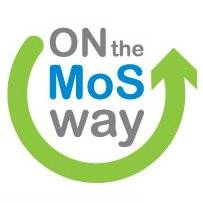
The European Sea Ports Organisation (ESPO) welcomes the agreement reached on 7 February between the Parliament and the Council on the new regulation establishing a European Maritime Single Window environment (EMSWe). With the new framework, which will repeal the current Reporting Formalities Directive, important steps are made towards reducing administrative burden and increasing the attractiveness of maritime transport. It provides for the creation of an EMSWe dataset, harmonised National Single Windows and the application of the reporting-only-once principle.
“We see the agreement as a real breakthrough on this very technical but important matter for the maritime and logistics sector. The outcome provides clear engagements towards administrative simplification and a more efficient supply chain. We are very happy that the new framework is recognizing the bottom-up efforts and investments already made and underway by European ports towards creating a one-stop shop for both the reporting formalities and all other services rendered to stakeholders in the logistics chain. The agreement is thus fully compliant with the ambitious digitalisation agenda of many European ports. We would like to thank and congratulate the Parliament – in particular, the rapporteur, Deirdre Clune and the shadow rapporteurs -, the Romanian Presidency and the Commission for their constructive approach in reaching an agreement”, says Isabelle Ryckbost, Secretary General of ESPO.

Rapporteur Deirdre Clune
ESPO supports the following decisions:
- Ensuring that the same data sets can be reported in the same way: For European ports, the first priority is to simplify administrative procedures by ensuring that the same data sets can be reported to each competent authority in the same way. ESPO, therefore, welcomes the emphasis in the new regulation on ensuring that the same data sets can be reported to each National Single Window in the same way by creating an EMSWe maximum dataset. The need to take into account the work carried out at international level is fully backed by ESPO.
- Asking additional data remains possible in exceptional circumstances: ESPO is very pleased to see that the final text is giving the possibility to the Member States to ask in the event of exceptional circumstances, for additional data, for a limited period of time, without having to ask the permission of the Commission.
- Respect for the existing reporting systems: Moreover, European ports very much support the fact that the new regulation is building on the existing reporting systems, the National Single Windows and Port Community Systems (PCS). It is of paramount importance that ports and shipping lines who are currently working with a PCS as a one-stop-shop for both the reporting formalities and all other services rendered to stakeholders in the logistics chain will be able to continue to do so in the future.
- Technological neutrality: ESPO is happy to see that technological neutrality is explicitly referred to as the basis for the European Maritime Single Window environment and agrees that the Commission should closely follow the latest technological developments when providing updates to the reporting interface modules for the National Single Windows.
- Providing the National Single Windows with a governance dimension: Finally, ESPO also welcomes the new provisions in the agreement on requiring the Member States to designate a competent national authority for the National Single Windows with a clear legal mandate. This provides the National Single Window with a governance dimension, giving it the competence to store and redistribute data to the respective authorities.
The agreement reached must now be further formalised by the Council and the Parliament and is expected to apply as from 2025 (six years after the entry into force).
Source: OnTheMosWay

